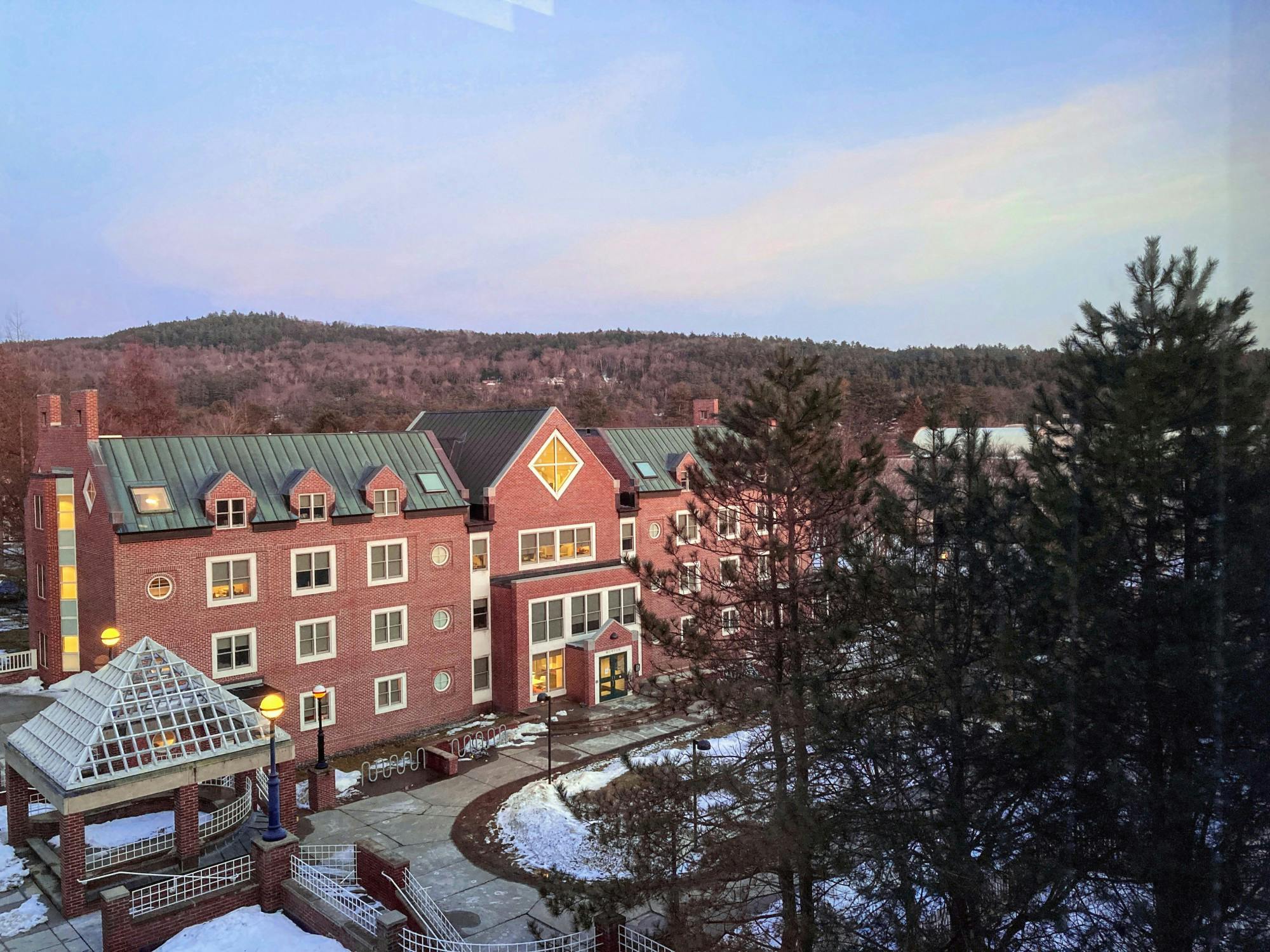In their Feb. 21 decision to pause further development of the proposed Lyme Road apartments until May, College faculty cited the project’s potential impact on the “undergraduate experience.” College administrators in favor of the proposal, on the other hand, believe the apartments could be utilized as a “swing space” to house students as current residential facilities undergo renovations.
Vice president for institutional projects Josh Keniston said that over the next 12 years, the College plans to renovate roughly 60% of all student dorm beds. As part of this extended renovation process, the College has sought out locations for new residential facilities to house students while pre-existing dormitories and apartments close for construction. In addition to the Lyme Road project, the College has proposed construction of a new dorm complex on the corner of Crosby Street and East Wheelock Street — which was placed on indefinite suspension last month — and coordinated spring housing with the Summit on Juniper apartment complex in Lebanon.
Hanover’s zoning laws make obtaining permits to build student residences complicated. However, according to Hanover’s planning, zoning and codes department director Robert Houseman, the Lyme Road project would be considered “multi-family dwellings” rather than residence halls. This is because the developments on Lyme Road would be self-contained residential units with cooking facilities and private bathrooms, unlike existing dorms.
“Adding a new residence hall to the inventory is both expensive in terms of where we would build it and what we would build,” executive vice president Rick Mills said. “It also means at the end of renovations [of pre-existing dorms], we’d be faced with having more dorm beds than we had students.”
Once renovations are completed, provost David Kotz said that the Lyme Road housing could be repurposed to house graduate students, who would likely prefer not to live in a traditional dorm space.
Keniston said that the College’s strategy is to begin renovations with smaller facilities, like Andres and Zimmerman Halls —which hold 84 and 86 beds, respectively — and will not require relocating a large number of students. The two buildings also had to be treated for hazardous mold in the fall, prompting some students to temporarily relocate. During renovations, students will be moved to housing in North Park and the Summit on Juniper apartments, a new complex which would be accessible via shuttle. Andres Hall is set to begin construction this summer and Zimmerman Hall in December, Keniston said. He added that both halls are anticipated to reopen by September of 2023.
Citing a student survey from earlier this month, Mills noted that one in five students said apartment-style living a mile and a half away from campus would be their top choice.
For larger renovation projects, however, swing space will become necessary, Mills said. According to a Jan. 28 College press release, housing developments on Lyme Road would serve as swing space to allow the college to renovate “the majority” of its existing residence halls. These plans include to renovate the 250-bed Massachusetts Row, 230-bed Fayerweather Hall and the 300-bed Choate cluster, according to Keniston.
“It's a complicated juggling act here because we’re talking about the need to upgrade dorm space, and also the need for additional beds,” Houseman said.
The renovations are intended to address the current dorms’ poor accessibility and poor energy efficiency, Kotz said. He explained that as part of the renovations, elevators and accessibility ramps will be added to dorms. There will also be a transition from steam to hot water in order to make the heat more controlled and consistent, according to Keniston.
Kotz and Keniston did not provide further information on other renovations.
“We go fairly deep into the weeds with the College on these issues, so we were brought in very early in the process,” Houseman said.
“The quality, quantity, efficiency, accessibility and flexibility [of housing] will all improve,” Kotz said. “I see that as an improvement to the student experience, which has been really at the core of a lot of the conversations we've been having right now about renovations.”

Arizbeth Rojas ’25 is a managing editor of the 181st directorate from Dallas, TX. When she’s not listening to DJ Sabrina the Teenage DJ or planning her next half marathon, you can find her munching on a lox bagel.




